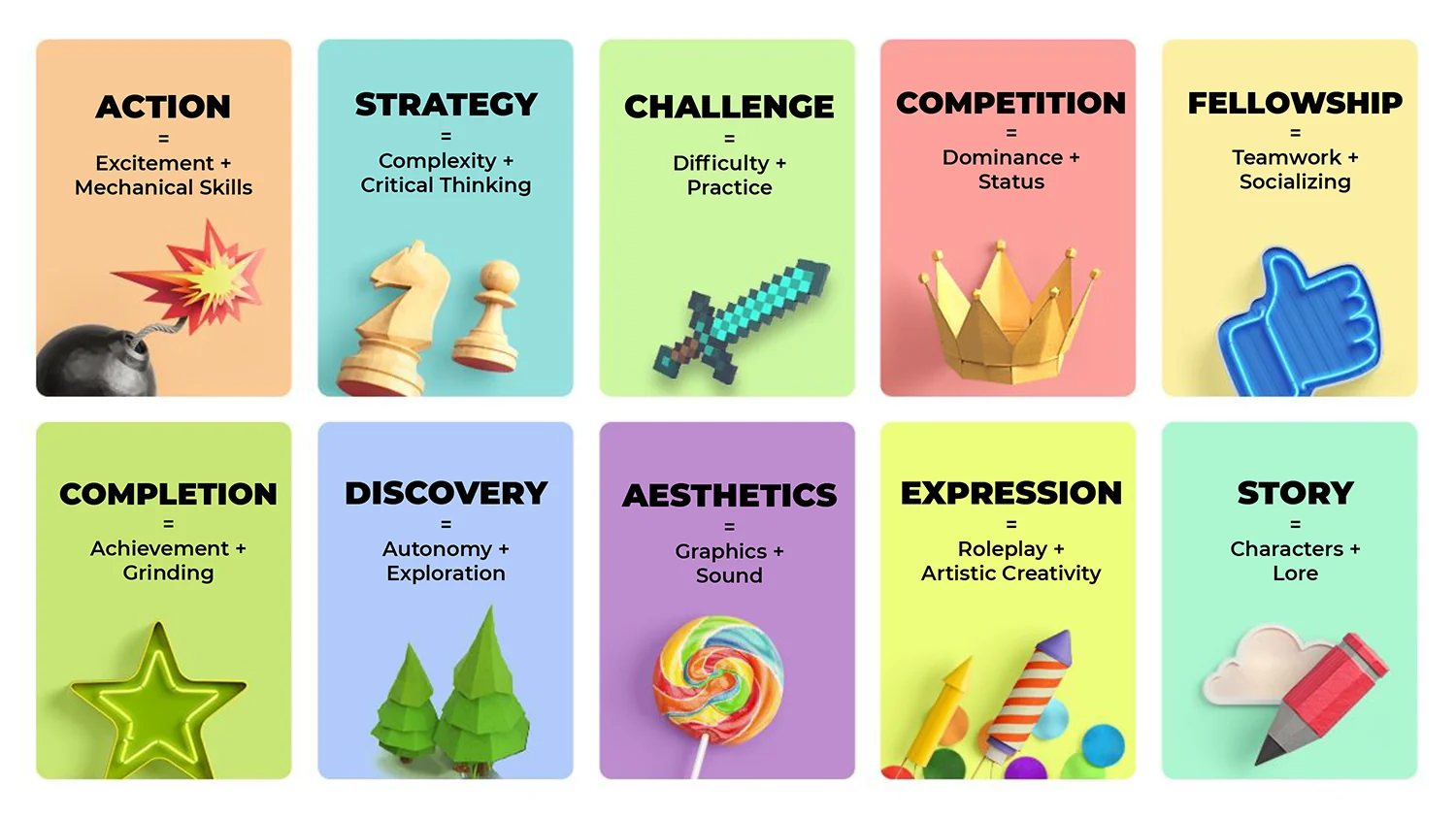Gamer DNA Framework

The Gamer DNA Model is usable by gamers for clarity about games they will enjoy playing and who to play them with. It is also useful for game designers to know the types of fun they are optimizing for. GameTree’s app uses a test with the Gamer DNA Model that is used with machine learning to connect players with the people they will enjoy playing with most. The model expands upon the famous Aesthetics of Play and Gamer Motivation models which are used in game design. GameTree’s is the first model useful for gamers themselves.
Action
Excitement: adrenaline, explosions, fast pacing
Mechanical Skills: timing, accuracy, precision, reflexes
Strategy
Complexity: many rules, high learning curve, depth
Critical Thinking: strategic decision making, foresight, analysis
Challenge
Difficulty: repeated failure, pushing limits, mastery
Practice: training, watching replays, exercises, self-improvement
Competition
Dominance: pwning noobs, winning, power, influence
Status: leaderboards, rankings, levels
Fellowship
Teamwork: cooperation, helping, unity, shared/synergistic objectives
Socializing: friends, relationship building, emotional connection
Completion
Achievement: badges, accomplishments, collectibles
Grinding: progression for time spent, accumulating resources
Discovery
Autonomy: freedom of choice, multiple paths, lack of required objectives
Exploration: procedural generation, large world, diverse activities
Aesthetics
Graphics: distinct style vs realism, thematic relevance, attention to detail
Sound: atmosphere, voice acting, sound effects, music
Expression
Artistic Creativity: variety, options, uniqueness
Roleplay: immersion, make-believe, choose-your-own-adventure
Story
Characters: interesting, engaging, believable, memorable
Lore: backstory, world-building, history, setting










